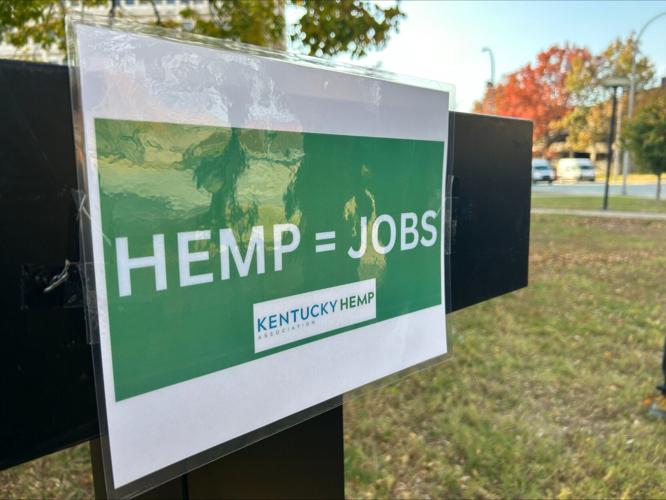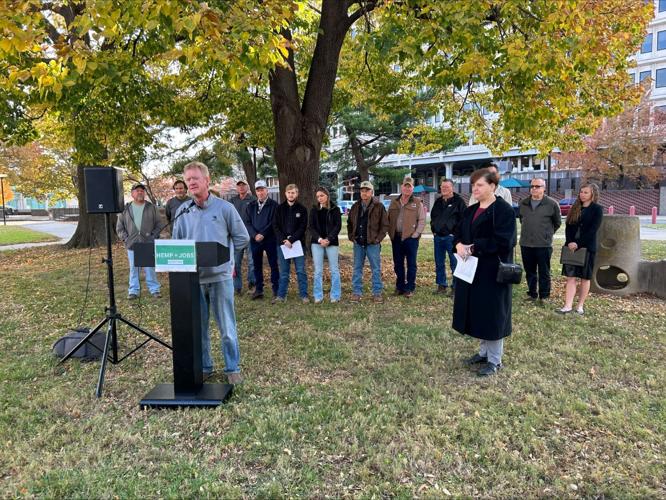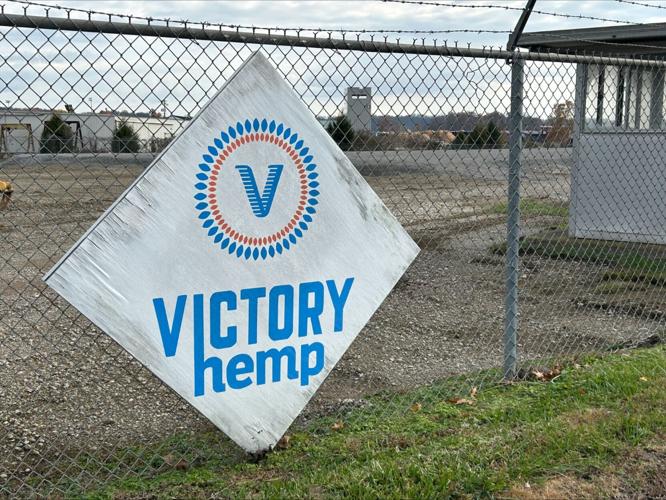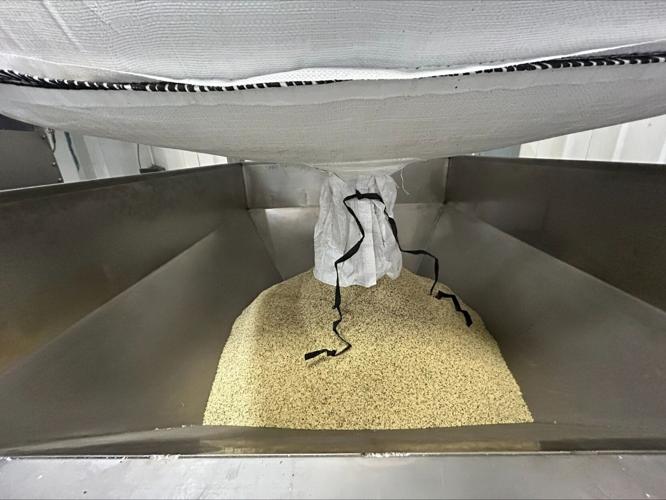LOUISVILLE, Ky. (WDRB) -- Asa Phillips choked back tears considering the possibility that some of the help on his farm may not be needed a year from now.
Phillips grows hemp in northern Kentucky.
"I watched the other day ... boys came out of the building to go to work, came out of the house to go to work the other morning, and I'm sitting there thinking they've got two months left and their job is over with," he said. "Probably don't need them next year."
Phillips isn't alone. Hemp farmers in Kentucky, and across the country, are filled with worry as the government shutdown-ending bill, which President Trump signed Wednesday, threatens the future of many hemp producers.
The bill to reopen the government contains language that redefines legal hemp to exclude many previously permissible hemp-derived products, particularly those with psychoactive cannabinoids or more than 0.3% total THC by dry weight.
It also bans finished consumer hemp products containing more than 0.4 milligrams of THC per container and prohibits the sale of hemp-derived intoxicants such as delta-8 THC in many retail settings.
For the hemp industry, that means many edible, vape and beverages will need reformulation or they could be be pulled from the market -- threatening jobs and investment in what has become a multibillion-dollar sector.
In Kentucky alone, the industry generates an estimated $330 million and employs more than 3,000 people.
"(Kentucky) should be the mecca of Hemp," said Kentucky Hemp Association President Dee Dee Taylor.
Taylor, who also owns 502 Hemp in Louisville, stood with a group of advocates, industry leaders, business owners and farmers Friday pleading for action following the ban on intoxicating hemp.
Those advocates spoke to reporters outside of Senator Mitch McConnell's Louisville office about the impact the ban would have on them. McConnell is responsible for the provision that passed in the shutdown-ending bill this week.
"I am proud to have championed this language that keeps these products out of the hands of children, secures the future of regulated hemp businesses, and keeps our promise to American farmers and law enforcement by clarifying the intention in the 2018 Farm Bill," the McConnell said earlier this week.
Though Sen. McConnell's provision could wipe out many segments of the hemp industry when it takes effect in one year, "industrial hemp and CBD will remain legal for industrial applications — such as seed, stock, fiber, grain oil," he said.

Victory Hemp, located in Carrollton, Ky., processes hemp seeds into food-grade ingredients like protein powder, oil, and hemp hearts for use in plant-based foods and consumer products.
Victory Hemp, located in Carrollton, Ky., processes hemp seeds into food-grade ingredients like protein powder, oil, and hemp hearts for use in plant-based foods and consumer products. It operates in a segment of the hemp industry that won't be affected.
"My heart goes out to those farmers, those business owners, to the employees of those companies that are in that medicinal space, but for the hemp industry to be cast as this affecting all of the hemp industry I don't think is accurate," said Chad Rosen, who founded the Kentucky business in 2018.
While Rosen will continue business as usual in the wake of worry amongst the hemp industry, he believes the ban will weed out the bad actors taking advantage of a loophole found in the 2018 farm bill.

Victory Hemp processes shelled hemp hearts into various ingredients.
"I do see this as the moment for a call to arms for everyone to voice their opinion and get that legislation right so there is no more gray area, there is no more questions about whether this is legal, where it can be sold, who it can be sold to," he said.
Rosen, and others in the industry, believe that the fallout could open the door for new legislation that will pave the way for regulation.
"There's enough money, there's enough voices and there's enough common sense in the CBDF segment from consumers and from the businesses to put forth a very good case that is science backed, that legislators will be able to adopt and pass off to regulatory agencies so that there's a better outcome," Rosen added.
Meanwhile, Kentucky lawmakers are hoping there's an avenue for state legislation that could help ease the burden. But there's no clear path forward, yet.
"We're looking at different options we can do but it's very complicated because of what just passed," Rep. Al Gentry, D-Louisville, said.
However, one thing most in the industry agree on, regardless of their segment of hemp, is that something less damaging to the industry as a whole could be in front of Congress before the ban takes affect in November of 2026.
"Hopefully we can make a real difference, and make a change, and get legislation that actually benefits everyone and doesn't stop this industry from growing," Kentucky Hemp Association President Dee Dee Taylor said.
Related Coverage:
Kentucky's hemp industry at risk as Senate bill seeks to ban THC products
Wait to buy medical marijuana in Kentucky continues for more than 15,000 cardholders
Kentucky's first medical cannabis dispensary approved, expected to open this fall
Ky. governor asks President Trump to allow less dangerous classification for cannabis
‘It would destroy me’ | McConnell push to bar ‘intoxicating’ hemp vexes new Kentucky industry
Kentucky facility begins cultivating state's first medical cannabis inventory
Copyright 2025 WDRB Media. All rights reserved.

















